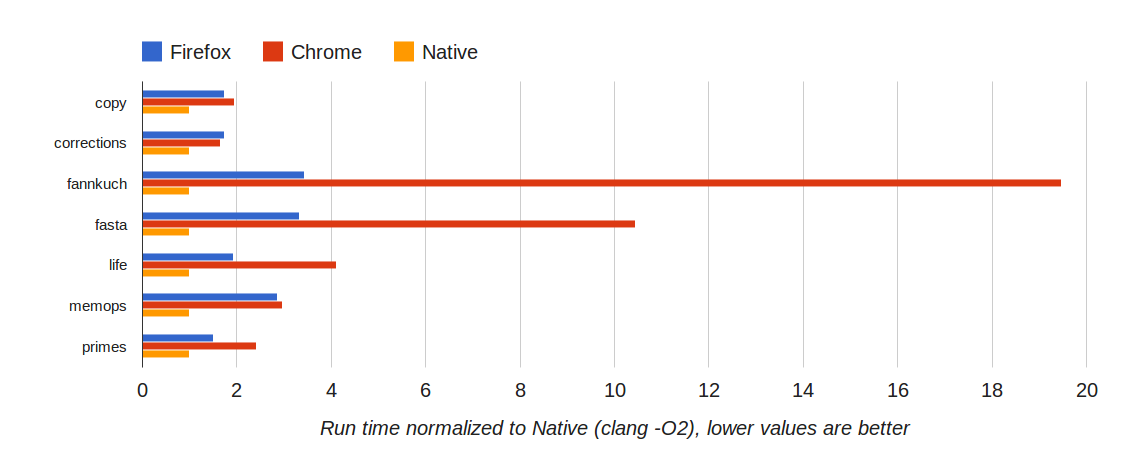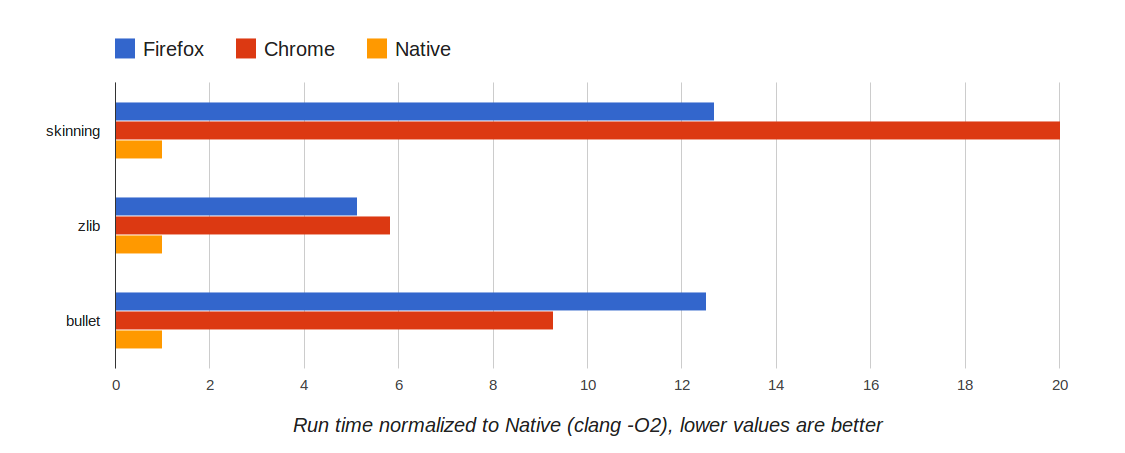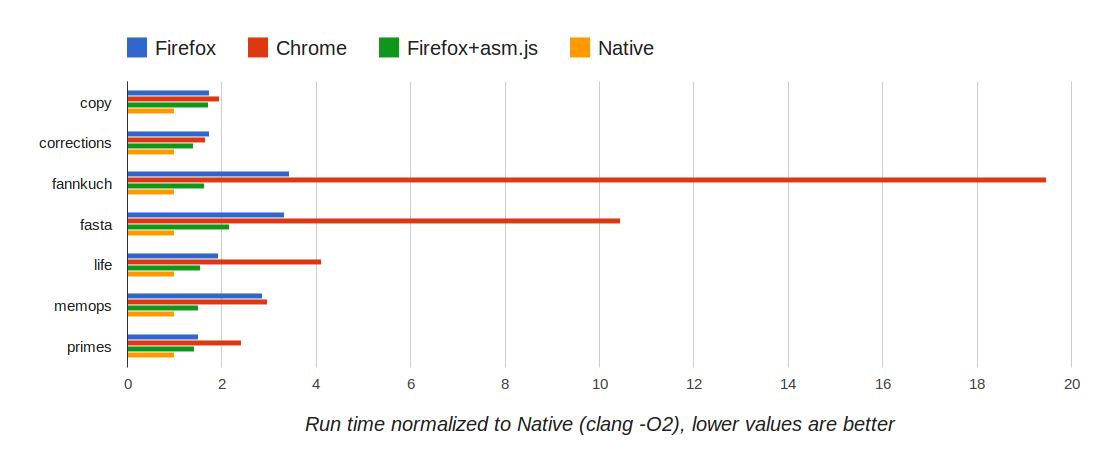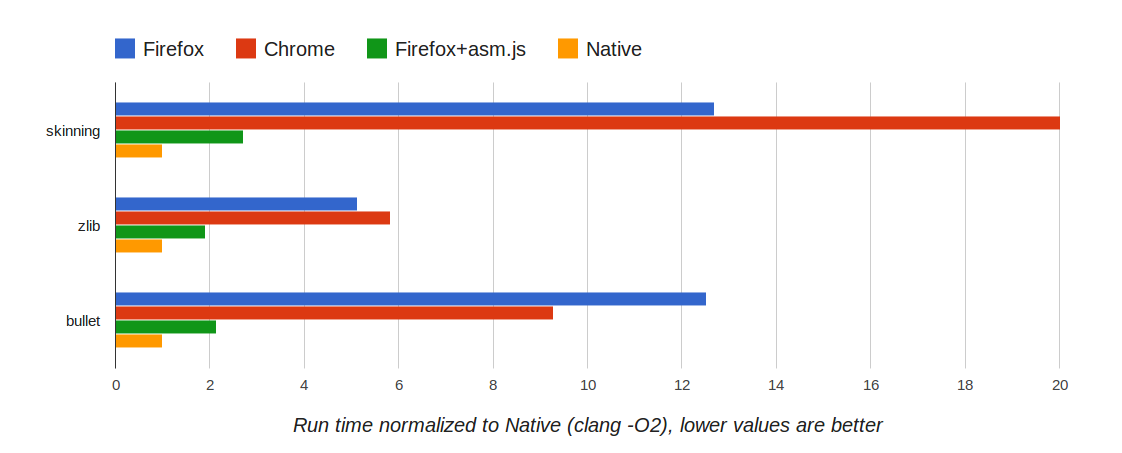Compiling C/C++
to JavaScript
to JavaScript
GDC 2013
Alon Zakai - Mozilla
Why JavaScript?
1. Because it's there
JavaScript is the only standards-based language in all web browsers
2. And it can be fast
Despite JavaScript's dynamic nature, modern JavaScript VMs are quite speedy, and even more so with asm.js as we saw in the demos before!
Why Compile to JavaScript?
1. Reuse existing code
C/C++ => LLVM => Emscripten => JavaScript
Automatically convert to JavaScript, no need for time-consuming manual rewrites
2. Speed
Compiled code can be faster than handwritten JavaScript (!)
Modern JavaScript Engines
Detect types at runtime and generate efficient machine code
function sum(x) { // in practice, called with small integers
var s = 0;
for (var i = 1; i < x; i++) s += i; // in practice, i is an integer
return s;
}
Modern JavaScript Engines
Support features like typed arrays that are easy to make fast
var heap = new Int32Array(10240);
// ..
function sumArray(x) {
var s = 0;
for (var i = 0; i < x; i++) s += heap[i]; // fast read of int32
return s;
}
Compiled Code vs. Handwritten JS
Compiled code from a statically-typed language is still implicitly typed, so optimizable
Easy and natural to make compiled use utilize typed arrays for speed
Microbenchmarks

Realistic/large benchmarks

Limitations
While modern JavaScript engines are fast in many cases, they can have trouble on large applications:
More functions, more variables - harder to figure out types
Issues with deoptimizations / recompilations
asm.js
asm.js, which began as a research project at Mozilla, aims to fix these issues
asm.js is an extraordinarily optimizable,
low-level subset of JavaScript
100% backwards compatible: Not a new new language, not a new VM
But can be optimized like a low-level VM
asm.js - example
function strlen(ptr) { // calculate length of C string
ptr = ptr|0;
var curr = 0;
curr = ptr;
while (MEM8[curr]|0 != 0) {
curr = (curr + 1)|0;
}
return (curr - ptr)|0;
}
If you've ever seen compiled code from Emscripten or Mandreel, |0 etc. will look familiar
asm.js just formalizes these techniques and gives guarantees (via a type system) they are used properly
asm.js - why it works
Ensures that types are not mixed up
Makes it possible to reason about global program structure
Helps in existing JavaScript engines by making it simpler to detect types and avoid them changing later
Makes ahead of time (AOT) compilation possible with asm.js-specific optimizations
Microbenchmarks

Realistic/large benchmarks

asm.js - Status
Emscripten can emit asm.js output
asm.js code already works in all modern browsers
With asm.js-specific optimizations in Firefox Nightly, performance is within 2x of native. And that's just the beginning!
Big Picture:
Compiling C/C++ to JavaScript
Mature open source tools (emscripten, LLVM, etc.)
Fast code execution, getting close to native speed